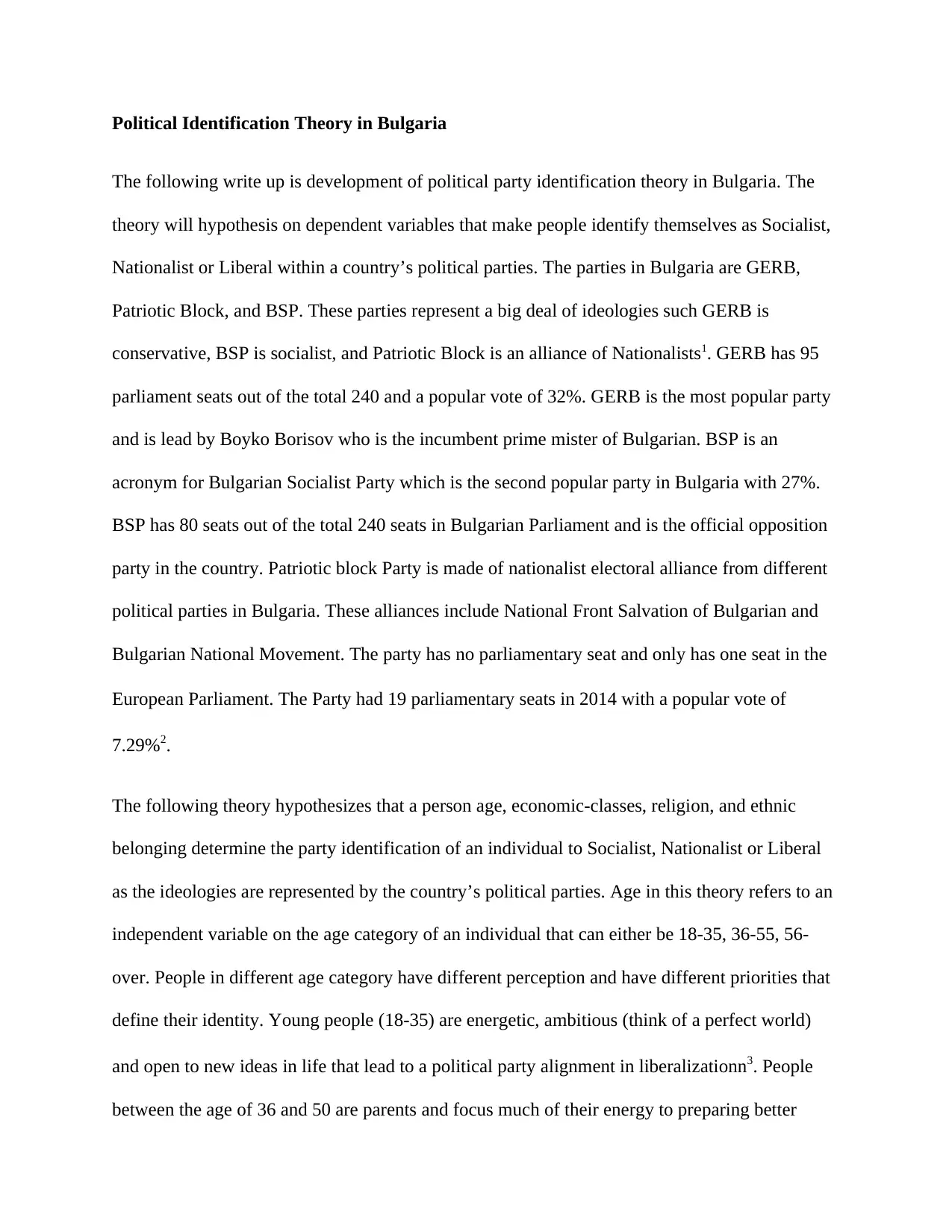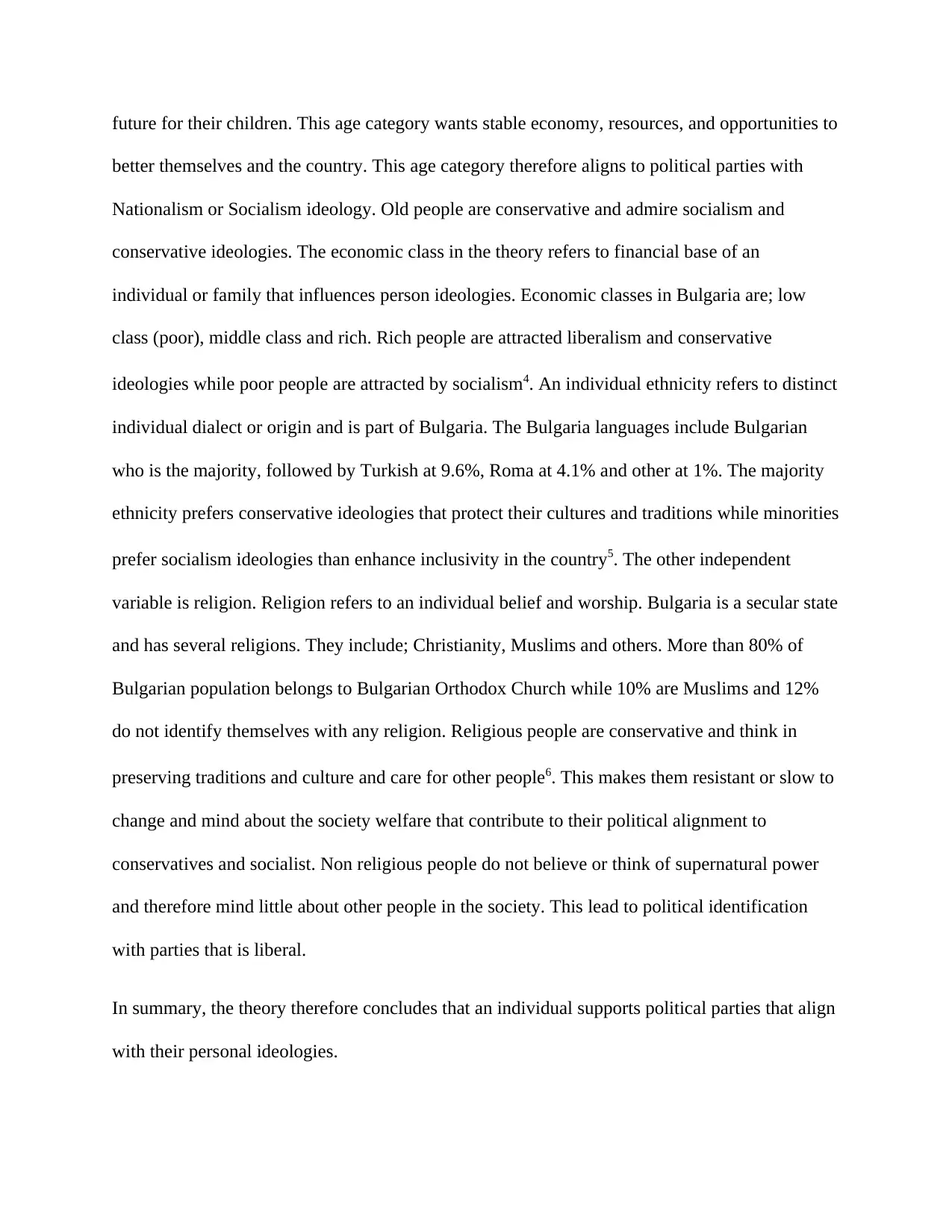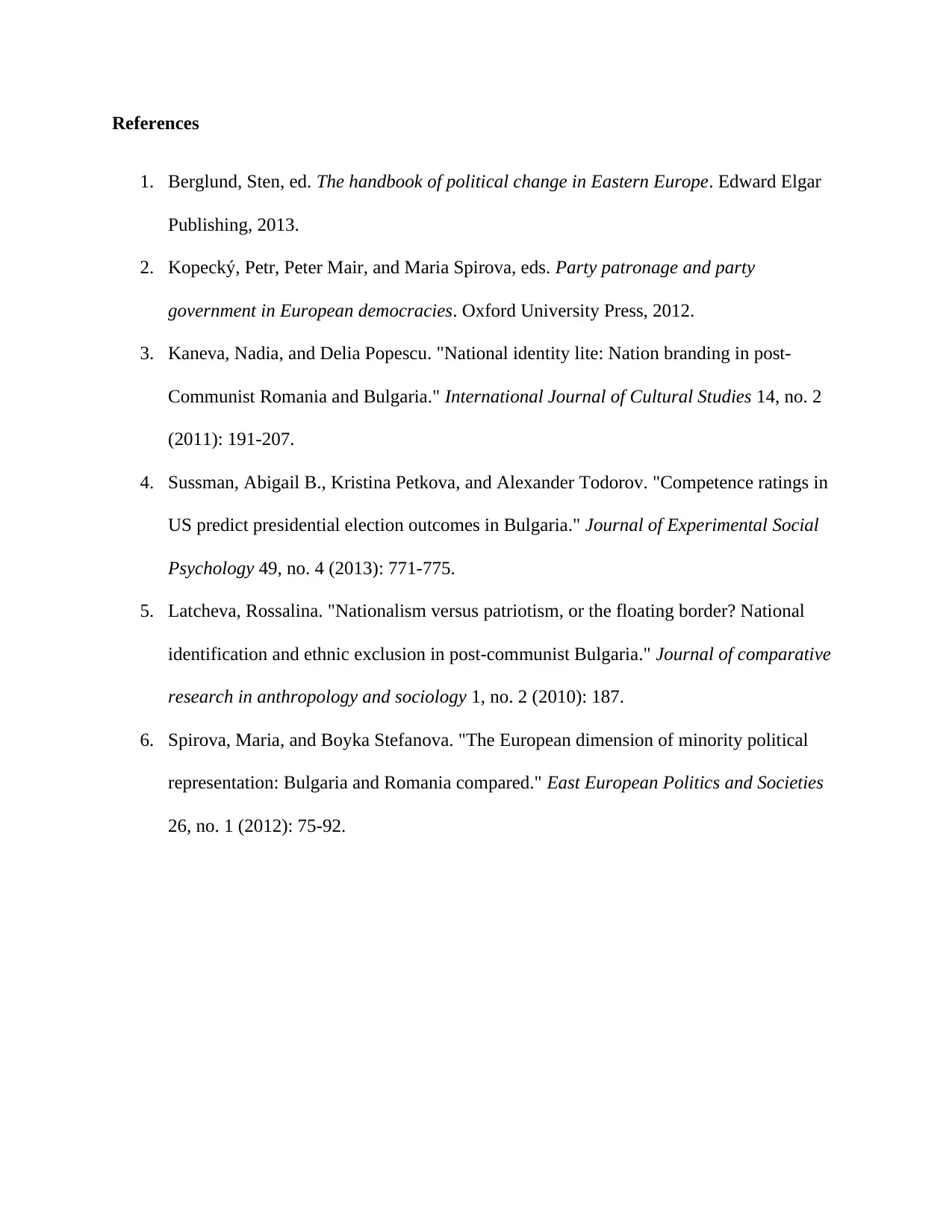An Analysis of Political Identification Theory in Bulgaria
VerifiedAdded on 2020/04/21
|4
|908
|389
Essay
AI Summary
This essay develops a political party identification theory specifically for Bulgaria, analyzing the factors that influence an individual's alignment with socialist, nationalist, or liberal ideologies as represented by the country's political parties (GERB, BSP, and Patriotic Block). The theory hypothesizes that age (18-35, 36-55, 56+), economic class (low, middle, rich), ethnicity (Bulgarian, Turkish, Roma, others), and religion (Christianity, Muslim, other/none) are key independent variables. Young people are seen as more liberal, while older generations may lean towards socialist or conservative views. Economic class influences political leanings, with richer individuals favoring liberal or conservative ideologies and poorer individuals attracted to socialism. Ethnic and religious affiliations also play a role, with the majority ethnicity often preferring conservative ideologies and religious people tending to be conservative. The theory concludes that individual support for political parties aligns with their personal ideologies, shaped by these demographic and social factors.
1 out of 4






![[object Object]](/_next/static/media/star-bottom.7253800d.svg)